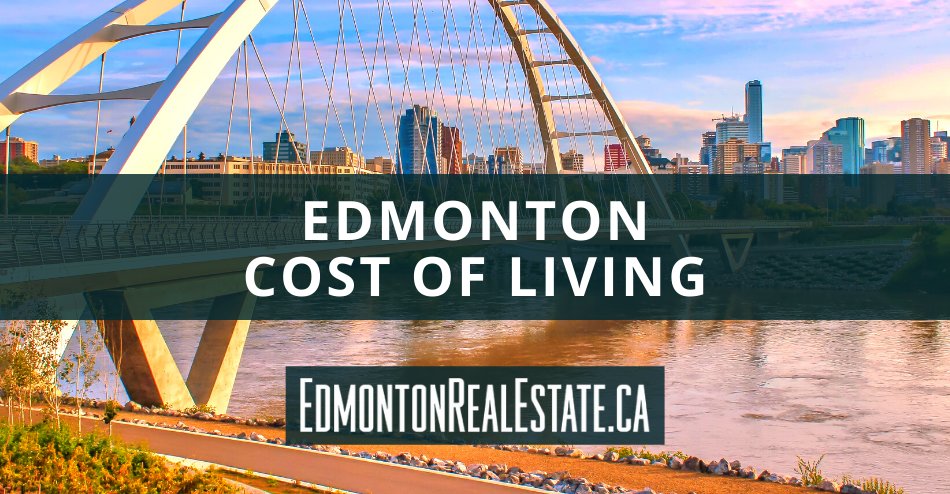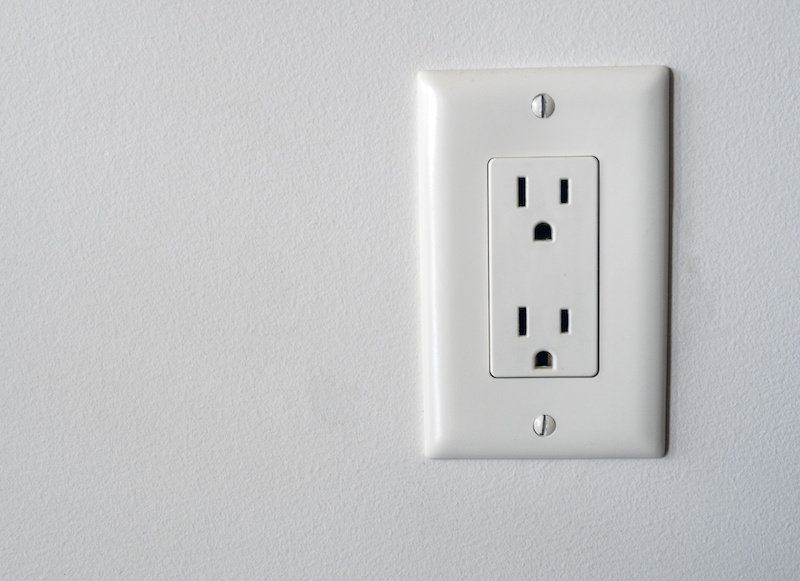Edmonton Cost of Living: Edmonton, AB Living Expenses Guide
Posted by EdmontonRealEstate .ca on Thursday, November 5th, 2020 at 11:42am.

The economy of Edmonton, Alberta, is strong and currently growing. Although the cost of housing is significantly lower than the rest of the country, incomes are generally higher. Experts say that this is the result of exploding economic growth.
Edmonton maintains a population of about 1 million people, making it the second-largest city in the province of Alberta. A population this size represents almost a quarter of Alberta, with a competitive employment rate and a steady housing market. People who move to Edmonton may enjoy this balance of higher-than-average incomes and lower-than-average housing costs.
Those who are hoping to find a haven from areas with the highest cost of living, like Vancouver or Toronto, could be rewarded with an affordable, pleasant alternative in Edmonton. In addition to higher incomes, many aspects of life in this city are a bit more expensive, such as groceries, dining out, and transportation. In exchange, services like child care tend to cost less. To learn more about what goes into the cost of living in Edmonton, read on.
Table of Contents
Edmonton Housing Costs
Edmonton has a lower cost of housing than many other prominent cities in Canada. Home prices for Edmonton track closely to the average home value in Alberta, which is about $400,000. At the national level, Canadian home prices are close to $600,000, around 50% higher than Edmonton.
Comparison of Median Housing Costs in Edmonton
At more than $1 million, average home prices in the greater Vancouver area are among the most expensive for the country. Toronto is also more than double the price of Edmonton housing, at nearly $900,000 for a typical home. Montreal is a bit more affordable than Edmonton at about $410,000.
Median Home Price
The real estate market in Edmonton shows relatively strong growth from year to year. The change from 2019 to 2020 ranged from 5% to 7%, depending on the type of property. Buyers can expect to pay about $450,000 for a single-family home in Edmonton and closer to $235,000 for a condominium. Prices vary based on neighbourhood. The median price of a home in Edmonton is about $400,000, compared to around $270,000 for properties in the central part of the Edmonton metropolitan area. The Southwest metro area has the highest home values, which are about $475,000.
Median Rent
The cost to rent in Edmonton ranges from nearly $900 per month to $4,000 per month. The smallest flats tend to be the least expensive, starting at $900 per month for a studio and about $1,000 per month for a one-bedroom flat. Single-family home rentals cost the most, at almost $1,700 per month for a three-bedroom home and $2,000 per month for a four-bedroom home. A two-bedroom townhouse bridges the gap, averaging $1,400 per month. However, prices can fluctuate significantly depending on the neighbourhood as well as the time of year and the current housing demand.
Utilities
 The typical cost for utilities, including gas and electricity, ranges from $150 to $250 per month in Edmonton. Exact prices relate to the season, size of the home, and energy consumption. Water, sewer, and trash prices are about $80 to $120 per month. Internet services average a little higher than $50 per month, depending on the service plan. Some companies offer Internet, television, and phone services together, which can range from $120 to $180 per month.
The typical cost for utilities, including gas and electricity, ranges from $150 to $250 per month in Edmonton. Exact prices relate to the season, size of the home, and energy consumption. Water, sewer, and trash prices are about $80 to $120 per month. Internet services average a little higher than $50 per month, depending on the service plan. Some companies offer Internet, television, and phone services together, which can range from $120 to $180 per month.
Most Edmonton residents pay about $1,000 per year for home insurance, translating to just under $100 per month. Although these averages help people know what to expect, it is important to remember that insurance rates depend on a variety of factors, such as:
- Home type
- Size of the space
- Homeowner or tenant record
- Location
- Level of coverage
Those who are looking for the lowest rates may need to shop around and get multiple quotes before they make a choice.
Edmonton Food Costs
The cost of food in Canada as a whole is less expensive than it is in Edmonton. For example, the average cost of a restaurant meal for two people in Canada is about $70, compared to $80 in Edmonton. Additionally, the price of one dozen eggs is about 50 cents more expensive in Edmonton. This difference suggests that while the price of housing is less expensive in Edmonton, not all expenses are lower.
Groceries
The average monthly expense for groceries in Edmonton is about $200 to $400 per week. This includes about $2 for a litre of milk, $4 for one dozen eggs, and $14 for half a kilogram of cheese. Prices are dependent on product choices, selection, and consumption.
Edmonton Average Food Costs
People who are looking for the lowest prices on groceries in Edmonton should search for stores like No Frills. These stores may also offer price matching on advertisements from other stores.
Restaurants
 The price of restaurants in Edmonton depends on the type and the amount of food purchased. For example, a fast-food restaurant meal costs about $10 per person. By comparison, an inexpensive, casual restaurant averages about $17 per person. A large meal with multiple courses for two people costs between $70 and $90 total. This range may not include drinks, such as an imported beer or a moderately priced bottle of wine.
The price of restaurants in Edmonton depends on the type and the amount of food purchased. For example, a fast-food restaurant meal costs about $10 per person. By comparison, an inexpensive, casual restaurant averages about $17 per person. A large meal with multiple courses for two people costs between $70 and $90 total. This range may not include drinks, such as an imported beer or a moderately priced bottle of wine.
Edmonton Transportation Costs
Many people get around Edmonton by car. Petrol prices range from 90 cents to $1.00 per litre. The least expensive places to buy petrol generally include Costco, CO-OP, and Petro-Canada. These costs are similar to other parts of Alberta.
Edmonton Transit Costs Comparison
Calling a taxi averages about $3.50 to $3.75 to start, with increases based on the number of kilometres in total distance for the trip. Single-use passes for the bus or light rail are around the same price, which is $3.25 apiece. A monthly pass for these tickets and other types of public transport average about $100 per month.
The average price of auto insurance in Edmonton is $2,500 per year, which breaks down to a little more than $200 per month. People should keep in mind that there are many aspects that can affect an insurance estimate, such as the driver's age, experience, and driving record. Be sure to compare auto insurance rates in Alberta to get what's best for you.
Edmonton Healthcare Costs
 Residents of Edmonton mostly rely on the Alberta Health Care Insurance Plan for coverage, an insurance plan financed and administered by the province. This plan is designed to be fairly comprehensive, but it does not cover everything. For healthcare, the AHCIP provides full coverage for:
Residents of Edmonton mostly rely on the Alberta Health Care Insurance Plan for coverage, an insurance plan financed and administered by the province. This plan is designed to be fairly comprehensive, but it does not cover everything. For healthcare, the AHCIP provides full coverage for:
- Medically necessary care
- Care required by a doctor
- Testing and other diagnostic procedures
- Surgery
- Hospital stays
As a general rule, the coverage residents will receive depends on necessity. This means that people often need to follow a specific protocol to ensure visits or procedures are covered.
Residents of Alberta may spend up to 30 percent extra on services that are only partially covered or not covered by the AHCIP. Although the province has an insurance plan for everyone, many people decide to purchase a supplemental insurance plan that covers other aspects of healthcare, such as vision or dental. This coverage starts at almost $100 per month.
Paying for pet health in Edmonton varies, depending on the type of pet and the procedure needed. It is recommended for people to request a fee schedule in advance of any necessary procedures. Some people choose to sign up for pet insurance, which can help them pay for certain types of procedures in exchange for premiums paid in advance.
Edmonton Child Care Costs
Those who send a child to full-time care during the day can expect to pay $550 to $950 per month in Edmonton. Infants are the most expensive, while school-age children are the least expensive. Those who use part-time child care will pay about $40 to $50 per day. These ranges are about 5 percent lower than costs for the country as a whole. Families who qualify may be eligible for child care subsidies up to about $750 per month.
Edmonton Average Monthly Childcare Costs
Some families prefer to hire a nanny to care for their children inside their home. A full-time nanny in Edmonton costs around $15 to $20 per hour.
Edmonton Entertainment Costs
 With a population of nearly 1.5 million residents, the Edmonton metropolitan area offers a variety of entertainment options. The prices people pay for leisure activities depend on their budgets and the type of entertainment they choose. Many parks are free, and some museums are as well. Otherwise, people can expect to pay about $15 for a ticket to see a film, compared to at least $100 for a ticket to a theatre performance. At around $20 to $50, an indoor swimming pool session or bowling are moderately priced. A day out at an amusement park or the zoo costs around $75 to $150 for a group of people.
With a population of nearly 1.5 million residents, the Edmonton metropolitan area offers a variety of entertainment options. The prices people pay for leisure activities depend on their budgets and the type of entertainment they choose. Many parks are free, and some museums are as well. Otherwise, people can expect to pay about $15 for a ticket to see a film, compared to at least $100 for a ticket to a theatre performance. At around $20 to $50, an indoor swimming pool session or bowling are moderately priced. A day out at an amusement park or the zoo costs around $75 to $150 for a group of people.
Provinces set tax rates based on a variety of factors, which means that rates can be significantly different across the country. Alberta sets a Goods and Services Tax of 5 percent and does not levy a Provincial Sales Tax. As such, Alberta's tax rate on goods and services is 5 percent, while it may be as high as 15 percent in other provinces.
Edmonton Salary
The median income in Edmonton is about $47,784 per year. The average household income is $93,454, or $77,936 after taxes. Income tax rates in Alberta are progressive, ranging from 10 to 15 percent.
Monthly Expense Percentages Based on Average Edmonton Salary
Edmonton's median household income is relatively high compared to Canada as a whole. Researchers estimate that Edmonton resident salary averages are at least $14,000 per year higher after taxes than someone living in Calgary. The highest-paying jobs include physicians, project managers, pharmacy managers, and architects.
As an hourly rate, Alberta's minimum wage is $15 per hour. At the time this rate was increased in 2018, it was the highest rate in the country. The most common jobs typically focus on retail and other service-based positions.
Edmonton's unemployment rate generally sits around 8 percent.
Additional Considerations for the Cost of Living in Edmonton
The city of Edmonton offers a lot of economic variety in a beautiful area. The region has moderate summers as well as winters that are quite cold. As such, people who move to the city can expect to pay much more for things like energy use in the winter. Although the city's temperatures can be much lower than winters in cities like Toronto, the moderate humidity makes the summers and the winters in Edmonton feel more comfortable. On top of a reasonable cost of housing and other expenses tracking closely with the national average, Edmonton is a great place to live.
If you're looking for the perfect Edmonton home, contact EdmontonRealEstate.ca in partnership with Justin Havre at (780) 800-9644 to get in touch with a local Edmonton real estate agent and discover your new dream home today.

